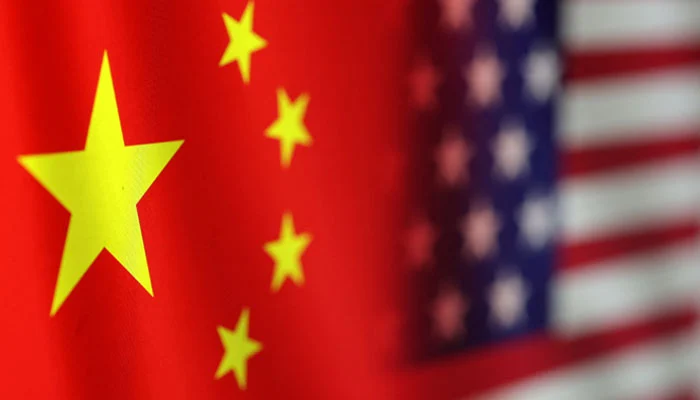China’s court system is now more transparent thanks to its white paper exposing its human rights record. Simultaneously, it provides an opportunity to examine Beijing’s strategy for combating extremism in its most vulnerable province, Xinjiang.
According to a quote from Socrates, “intelligent individuals learn from everything and everyone.” Beijing kept a close eye on the wave of terrorism in the area and moved quickly to put an end to it.
It did not, however, come without drawing the strongest criticism and penalties against several of its officials who had engaged in acts of ethnic cleansing against Uyghurs and other groups.
A US Department of State study states that “these crimes include coerced abortions, forced sterilizations, and more stringent implementation of the nation’s population control policy; Rape and additional sexual and gender-based violence instances.”
Washington’s accusations of Beijing’s anti-terrorism actions being characterized as “genocide and crimes against humanity” are not surprising.
Therefore, this white paper is essentially a response to the harsh criticism that has been leveled at China since it passed a counterterrorism law and began deradicalizing Xinjian, which is home to almost 11 million Uyghurs.
China holds the view that “religious extremism is not religion” or excessive radicalization distorts religious ideas in order to further evil goals. Therefore, it described the threat posed by terrorism before acting.
According to Beijing, a “proposition or act that coerces state agencies, violates personal and property rights, creates social panic, undermines public security, or uses violence, sabotage, or intimidation” is considered terrorism.
Beijing also classified the financing of terrorism as a “predicate crime of money laundering” in an effort to eradicate it. It has introduced provisions to the trial, prosecution, and investigation processes as well as further altered the Criminal Procedure Law within the past ten years.
We also closely monitor social media, which in certain Middle Eastern nations has sparked anti-government activity.
Beijing implemented a ban on the “production, reproduction, publication and distribution of information online containing content of terrorism and extremism” .
Human Rights Watch, however, has denounced these anti-terrorism measures as an attempt to legitimize criminal activity. These laws are being passed, in HRW’s opinion, to give security forces a “license to kill” or to merely repress opposition.
HRW interim director Maya Wang claimed that “President Xi Jinping’s repressive decade-plus in power and growing social control are taking an increasing toll on China’s economy and society” when she released the 740-page World Report 2024.
Beijing, on the other side, claims that by taking these “lawful” measures, it has upheld national security and stability and penalized criminals who planned terrorist attacks. In this sense, it asserts that it complies with international agreements and treaties.
The white document states that the security agencies must gather information—both positive and negative—without subjecting the suspect to torture.
It denies accusations of cultural genocide and asserts that ethnic communities have the right to speak in their native tongue during legal processes.
The rule against double punishment is applied in every situation to ensure that no suspect faces more than one administrative fine for committing the same crime.
In particular, the white paper states that “People’s congresses, as bodies of state power, oversee the work of people’s courts and people’s procuratorates by hearing their work reports and conducting special inquires.”
In addition, statutory compensation is available to those who have been wrongfully penalized.
Disregarding criticism, the administration of President Xi believes that each nation should pursue its own unique route toward the advancement of human rights. The formula needs to take into account national circumstances as well as historical and cultural values.
According to a Chinese diplomat, “The practices of lecturing and finger-pointing on other’s human rights, while ignoring and failing to solve one’s own serious human rights problems should be rejected.”
China claims that its human rights model is built on development, citing Xinjiang as an example. It claims to have lifted 3.06 million people out of poverty throughout 35 counties and 3,666 villages.
Xinjiang welcomed a record 265.44 million tourists in 2023—a year-over-year increase of nearly 117%. The amount of visitors to this autonomous territory is nearly the same as the combined populations of Germany, the UK, France, and Spain.
Wang Yi, the Chinese foreign minister, states, “People of all ethnic groups in Xinjiang are living a thriving life as they work in solidarity to build the autonomous region into an economic hub of the Silk Road Economic Belt and establish a pilot free trade zone.”
China has issued a warning to anyone who oppose it not to make decisions, politicize human rights concerns, impose their will, or meddle “under the guise of upholding the rule of law.”
According to the white paper, such acts “have severely hampered the global effort to fight against terrorism, weakened the foundations of cooperation, and reduced operational effectiveness.”
In closing, it stated that it was willing to collaborate on counterterrorism, but only if equality and respect were upheld.







